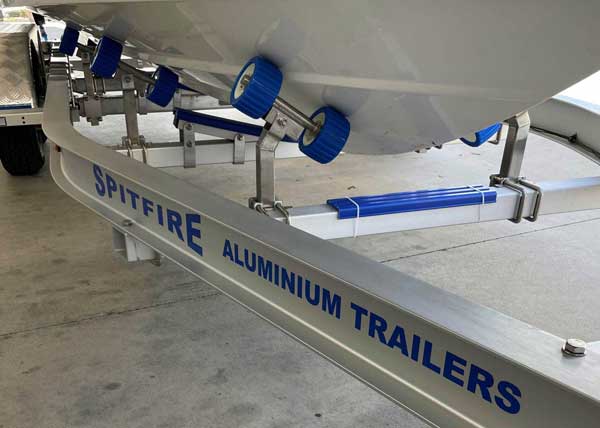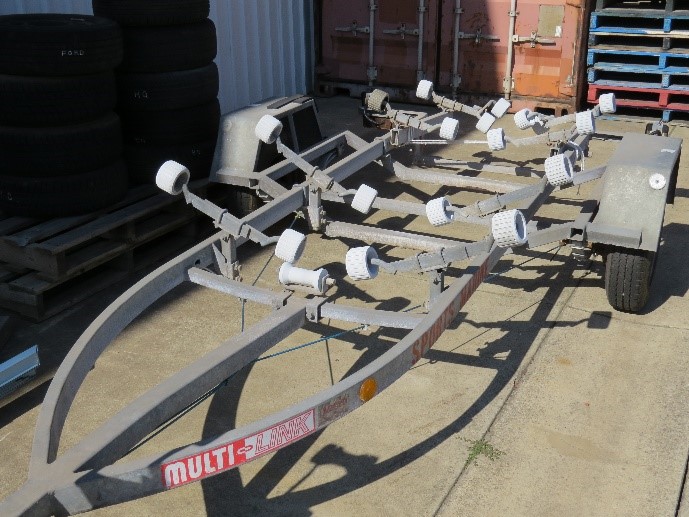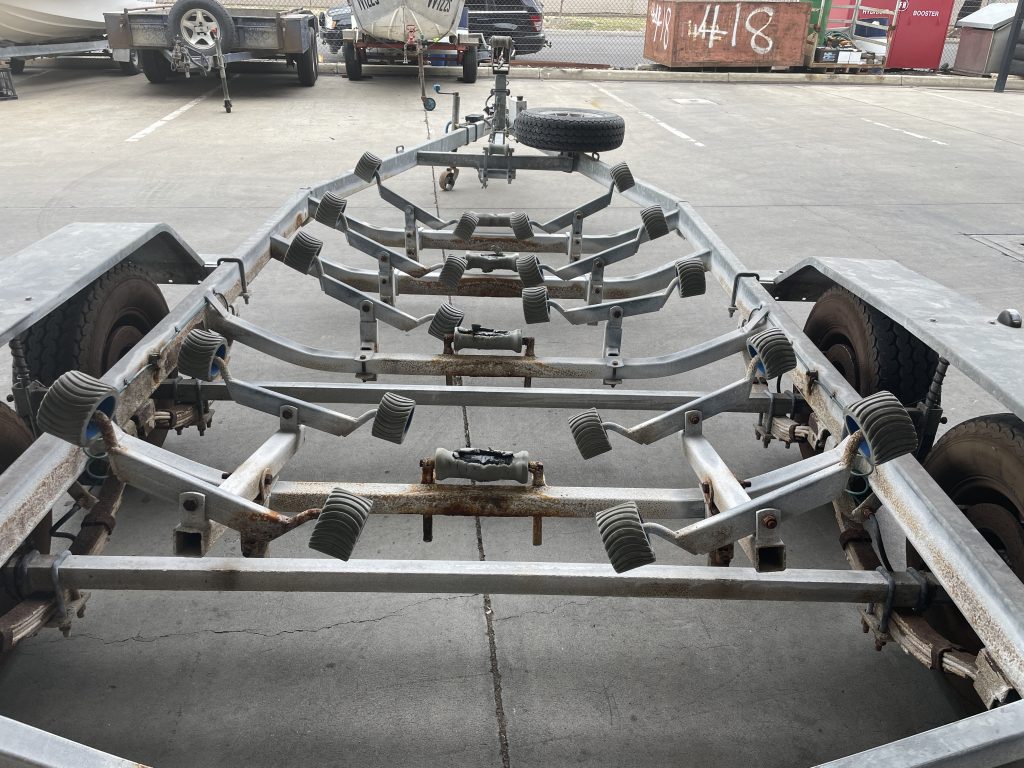
When is rust on my trailer an issue?
As all boaties know, rust and steel trailers are synonymous with each other. More complicated is understanding when the rust poses a significant risk and therefore when it’s advisable to repair or replace your boat trailer.
Trailers are constructed with load-carrying parts that work together to provide structural integrity. Hull supports, for example, adjusted properly against the hull and fixed to the trailer chassis, exert upward pressures to support the hull. But these items also exert an equal and opposite downward pressure onto the chassis via their mounting brackets. The weight of the boat pushing down on the supports therefore becomes struts that restrict chassis flexing at that point. Working together, all components provide structural integrity for safe operation.
Hull supports also exert force downwards onto the chassis
Now consider what is happening when key components start to rust. Steel exposed to moisture and oxygen over a period oxidizes and forms rust (iron oxide). Rust is treatable before it leads to serious corrosion and surface pitting. Surface pitting is particularly dangerous in that it weakens the metal in a way that attracts high-stress concentrations in the vicinity of the pitting when the area is subjected to heavy dynamic loads – such as when carrying a boat. This leads to fracture and cracking and ultimately will lead to failure.
The amount of rust that a boat trailer chassis can tolerate before becoming dangerous varies. Influencing factors include the age of the trailer, the level of exposure to saltwater or other corrosive environments, and the type of metal used in the construction of the chassis.

This trailer looks in reasonable condition

Closer inspection shows attention is needed
Small patches of surface rust on a trailer chassis are not a cause for concern and can occur on any part of the trailer, including the chassis, frame, and coupling. By treating this (wire brush and an applied surface coating), a bit of treated oxidation on the surface is very unlikely to compromise the structural integrity of the trailer.
However, once rust has penetrated the metal and is causing significant pitting or corrosion as pictured, repair or replacement will be necessary sooner rather than later so as not to compromise safety and structural integrity. And for many boat owners, replacement of a part or repairs to reinforce the structure of the trailer will suffice. The picture of a severely corroded subframe shows a trailer that is compromised and unsafe in operation.

This trailer is seriously compromised. Time to replace it
The primary danger of a rusting boat trailer chassis is the potential for the trailer to fail while driving, or for the boat to become dislodged and cause instability. Catastrophic failure will usually follow an unexpected occurrence – and a deteriorated chassis will be a contributing factor. A swerve at speed to avoid a pothole, a swerve to avoid an animal or other vehicle, or just the need to brake hard, are normal driving events that depend on the integrity of all parts of a trailer for safety on our roads.
In conclusion, while some surface rust is normal and expected on a boat trailer chassis, it is important to keep this at bay. Regular inspections and maintenance can help to ensure that your trailer remains safe and reliable for years to come. And while it can be costly to replace a trailer, this cost can be small compared to the potential consequences of a chassis failure!
Happy Boating
Spitfire Boat Trailers SA
